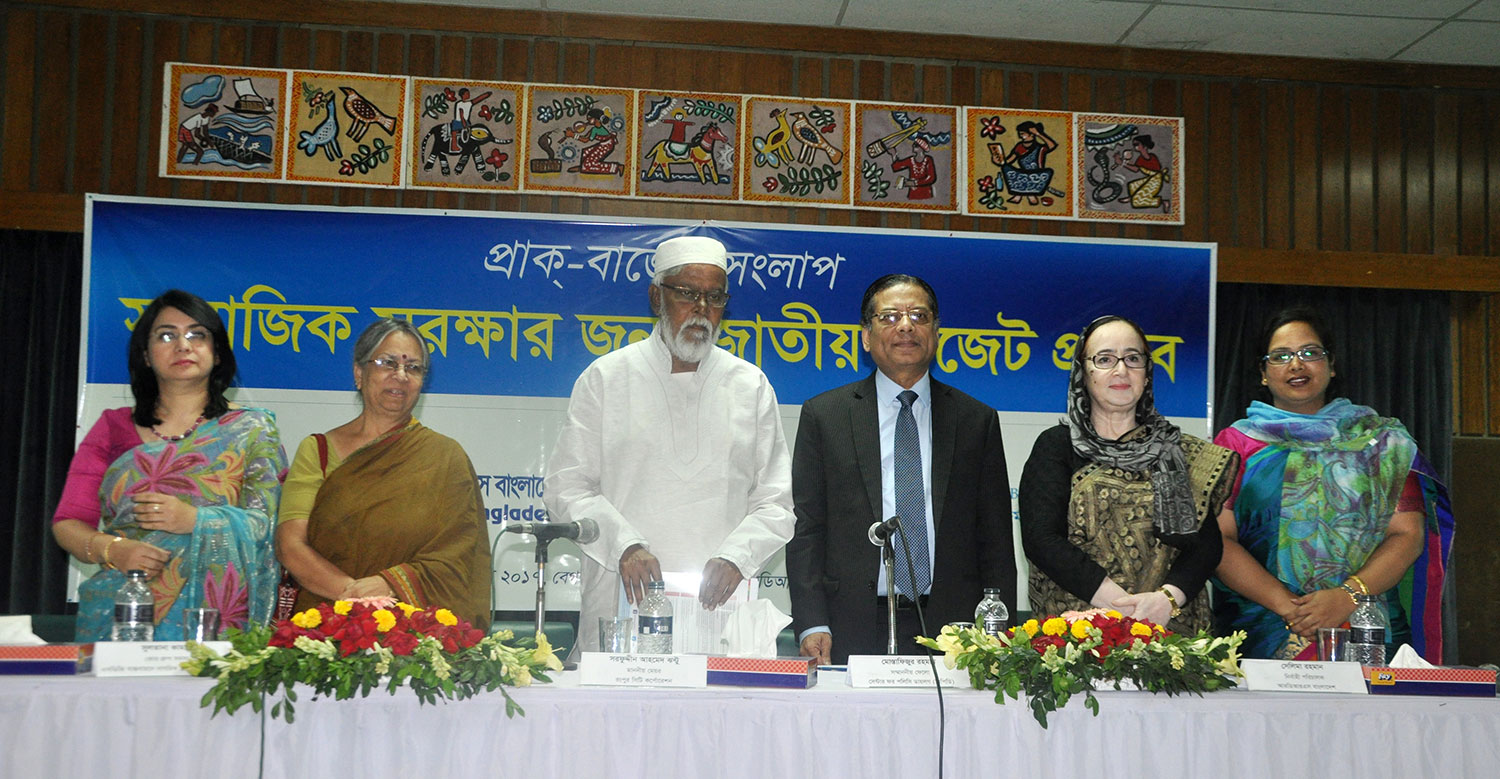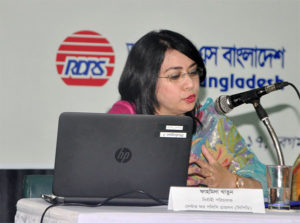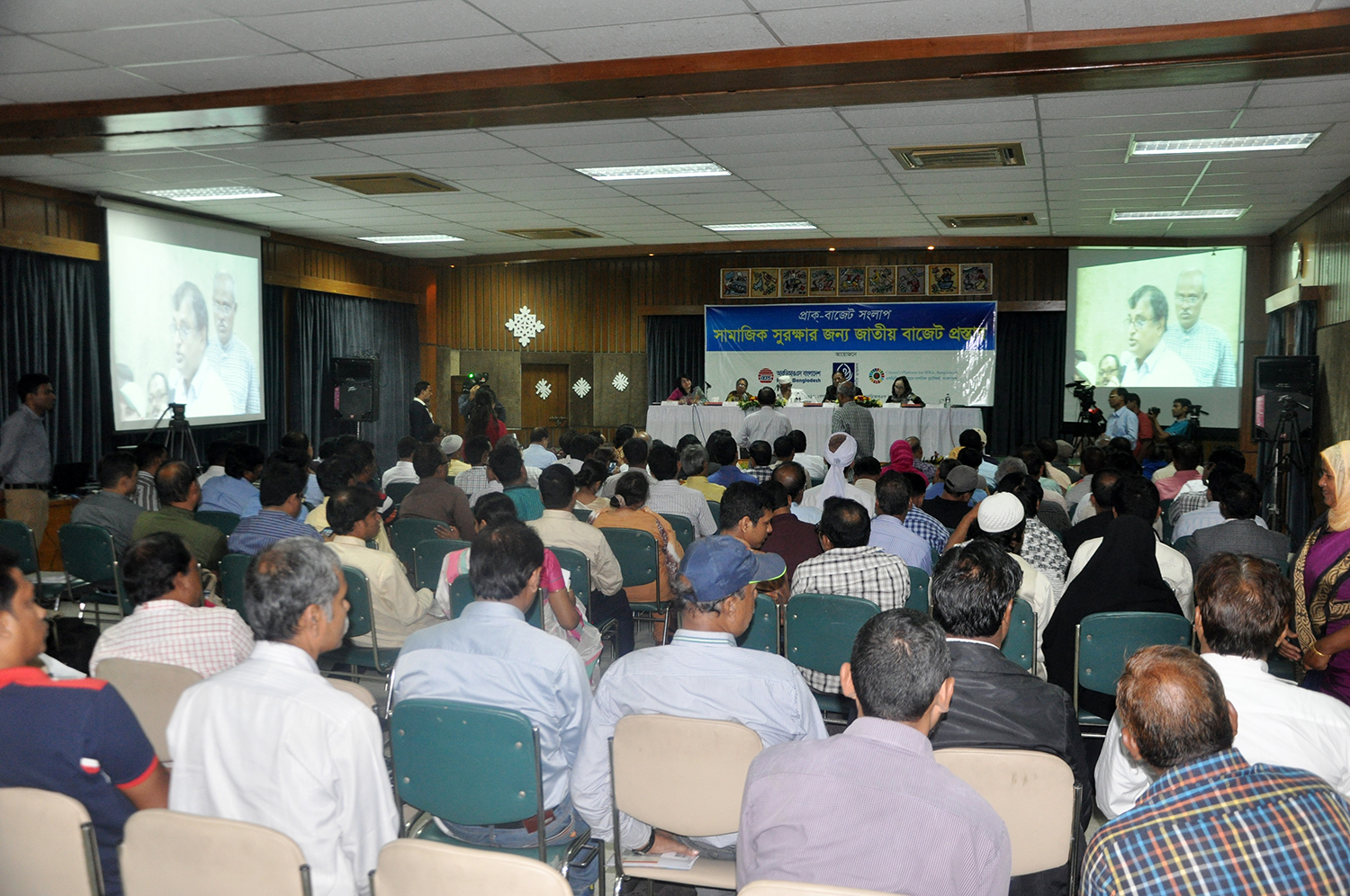
Effective decentralisation of the national budget is key to mainstream the marginalised communities with the national development process. Backward regions like Rangpur will require a special budget for bringing people into the development mainstream and improve their life and livelihoods, and the regional status of socio-economic indicators. The pursuit of attaining the Sustainable Development Goals (SDGs) will critically hinge upon inclusive approach of resource allocation and proper monitoring of the implementation process.
These views were shared at the pre-budget dialogue titled “Recommendations on Social Protection in the National Budget” jointly organised by Centre for Policy Dialogue (CPD), RDRS Bangladesh, and Citizen’s Platform for SDGs, Bangladesh on 1 April 2017 at the Begum Rokeya Auditorium of the RDRS Bangladesh, in Rangpur. Targeting the upcoming national budget for FY2017-18, the event was organised under CPD’s flagship programme Independent Review of Bangladesh’s Development (IRBD). CPD is currently working as the Secretariat of the Citizen’s Platform.
 Mr Sarfuddin Ahmed Jhantu, Mayor, Rangpur City Corporation, was present as the Chief Guest, while Mst Sultana Pervin, Deputy Commissioner (in-charge), attended as the Special Guest. Advocate Sultana Kamal, Core Group Member of the Citizen’s Platform for SDGs, Bangladesh and eminent human rights activist shared her views as a Special Commentator at the event.
Mr Sarfuddin Ahmed Jhantu, Mayor, Rangpur City Corporation, was present as the Chief Guest, while Mst Sultana Pervin, Deputy Commissioner (in-charge), attended as the Special Guest. Advocate Sultana Kamal, Core Group Member of the Citizen’s Platform for SDGs, Bangladesh and eminent human rights activist shared her views as a Special Commentator at the event.
While presenting the keynote, Dr Fahmida Khatun, Executive Director, CPD mentioned that poverty rate in Rangpur is one of the highest in the country, however allocation in the social safety net is the lowest among all divisions. The study recommends higher allocation in social safety nets and enhanced provision of vocational and other trainings to improve the skills of the underemployed people of the region; that would further enhance their income opportunities and employment generation.
The Mayor reckoned that Rangpur could be one of the leading regions in the country in attaining development goals overcoming the obvious impediments. He encouraged the government and civil society to work together to address the challenges.
Discussion also revolved around a gap in resource allocation from the Government that limits budget and constraints space for development prioritisation. Ms. Pervin shared that, the unskilled workers who migrate as labourers earn less, and spends a large portion of the remitted income in servicing the debt they leave while going abroad. She urged the remitters and their families to invest more in productive sectors such as skills training, which will ultimately help them in increasing their income level.

Advocate Sultana Kamal, Core Group Member of the Citizen’s Platform for SDGs, Bangladesh mentioned, allocation for safety net should be done based on the need for that district. Good governance and accountability in the beneficiary mapping as well as in distribution mechanism can ensure effective allocation of social safety net benefits among the poor people of the region, she added.
While chairing the event, Professor Mustafizur Rahman, Distinguished Fellow, CPD and Core Group Member of the Citizen’s Platform, commented that, private sector should come forward to invest creatively in agro-processing industries in the region for shifting dependency on agriculture produces alone this will also create employment opportunities for the people.
The dialogue was widely attended by academics, economists, social workers, business leaders, politicians and other professionals from the Rangpur Division. Special allocation for the people affected by river erosions, increased stipends for students, increased employment opportunities, training facilities for the aspiring migrant labourers were some of their recommendation areas to improve the socio-economic life of this region.

